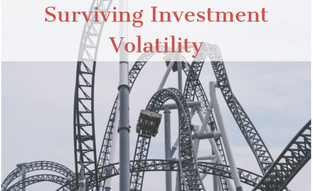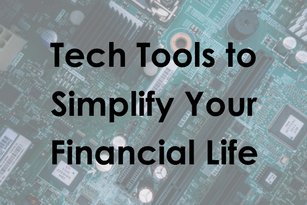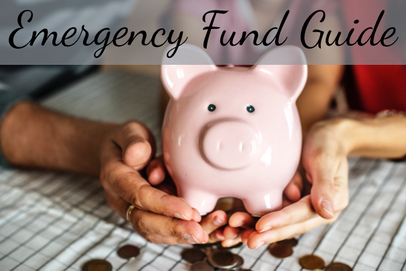 Money touches so many aspects of our lives. It influences our lifestyle, decisions, and emotions. Our relationship with money evokes a gamut of emotions including stress, greed, shame, eagerness, happiness, and joy. Depending on our season of life, money plays a role in our leisure activities, family planning, quality of life, access to resources, and even social standing. Whether we realize it or not, money acts in the background of life, greatly affecting our emotional health and well-being. Unfortunately, many of us feel trapped in our financial situations and are unsure of how to regain control over the money that seems to be controlling us. Many people spend their life pursuing more and more money, thinking they will someday reach a “happiness threshold” and stop needing more. At what point does money provide us with satisfaction instead of stress? Is there a magic number? Current research provides some clarity on this topic, and the following three blog posts will review the literature on the interaction between money and emotions. I hope this serves you and your family as you rediscover how to harness money for your joy.  One of the most common questions I answer is, “Where should I be saving my excess cash flow (the money left over at the end of the month)?" There is no easy answer as every situation is different, and the “magic formula” varies for everyone. However, a few basic principles may get you started in the right direction. What follows is my “magic formula”, applicable to most, but not all situations. To discover your “magic formula,” start by setting up your equation. I make this recommendation on repeat because of the importance of having a vision or an end goal. Write out your financial goals. What are you hoping to achieve? What are the must-have’s in your life? List these items in order of priority. Prioritizing this list will be important when considering how to allocate your savings.  “Psychology seems to lie behind all the ways that potentially improve stock market returns.” – Ben Stein and Phil Demuth (The Little Book of Alternative Investments) One of the most fascinating aspects of finance lie at the intersection of psychology and money. This is referred to as behavioral finance. One of the well-researched areas of behavioral finance is “The Behavior Gap” - A term coined by Carl Richards to describe why an investor trails behind their benchmark return, even when they hold the exact same investment as the benchmark. A lower return with the same investments. How could this happen? As the name implies, the difference between the returns has to do with your behavior and emotions.  It’s the time we’ve all been waiting for with eager expectation. Yes, it’s more exciting than Christmas, New Years, or Valentine’s Day. It’s Tax Season! It is likely that you have just begun receiving tax documents in the mail, so I wanted to give you five things to keep in mind as you navigate tax season. These tips are not necessarily for helping you get the most deductions or avoid an audit. Rather, these pointers will help you breeze through tax season without stress or panic.  Imagine you are standing in line for a rollercoaster at an amusement park. As you’re making your way to the front of the line you see people getting off the ride. Many people are smiling or laughing, and although a few look a little dizzy or sick, overall everyone is fine. Finally, as you embark on your ride and start upwards on the first and largest hill, you start to feel a different emotion than the excitement you felt earlier while watching riders exiting the cars. You feel overwhelming and consuming fear. As your car begins to crest the large drop, you’ve completely forgotten that everyone you’ve seen has survived and even enjoyed the ride, and all you have left is a sense of fear for the peril that certainly lies ahead.  Managing your finances can be time-consuming and organizationally demanding. There has to be a way to make it easier…more manageable. Technology, including electricity, running water, and, of course, Amazon Alexa and the robot vacuum, has made our everyday lives immensely easier. Believe it or not, high quality financial technology is available to help you better plan and organize your money. This post will cover helpful automation tools you can use to take control of your finances. Disclaimer: I would like to start by stating that I do NOT have any financial interests or incentives to recommend any of the following tools/websites. My online/blog advice meets the same fiduciary standards as my financial planning practice, meaning I only recommend what is in a person’s best interest.  Updated May 2020: After a brief interview and mention by NerdWallet on the topic of using your emergency fund during The COVID-19 Pandemic, we have updated our blog post with some points that we made during the interview. Maintaining an emergency fund (aka a rainy-day fund) is a fundamental component of a financially healthy life. This may seem “boring” or “basic” in comparison to the excitement of the stock market, but its importance cannot be overstated. An emergency fund protects you in the event of major, unexpected expenses or loss of income. Where Should I Start? Conventional advice suggests saving 3-6 months of expenses for a sufficient emergency fund. This can be a bit daunting, especially when starting at zero. Keep in mind that a small emergency fund is better than no emergency fund. Begin contributing small amounts over the next 6-12 months, and be patient as you work toward your goal of 3-6 months of expenses.  Over half of Americans do not have an estate plan. Some people believe that estate planning is only for the ultra-wealthy. Others see it as something they will get around to when they are older. Many do not even know what estate planning is. For simplicity’s sake, estate planning refers to planning what will happen when you pass away. Kinda morbid, huh? However, it is important to consider. Many financial planners offer estate planning because your financial assets are usually a large part of passing down an inheritance. There are also major tax considerations in ensuring that you pass the most assets to your heirs and the least possible to the government in taxes. While estate planning does encompass finances, the non-financial benefits are equally, if not more, important. Here are some important considerations when creating your estate plan.  Finances are stressful…and complicated. Your personal finances sustain your lifestyle, fit into your value system, and inform your decisions. No two financial situations are totally alike. It makes sense, then, that finances are a common stressor in marriage. People bring their finances into their marriage, usually resulting in two different methods and opinions on managing money. It can get fiery as these two views compete for the throne of “How things will be done in our household.” As a result, financial stress is the third most common cause for divorce in the US. |
|
1701 W Northwest Hwy Ste 100
Grapevine, TX 76051 640 Taylor Street Ste 1200 Fort Worth, TX 76102 (817)-799-7699 |
|
© 2023 Flourish Financial Planning, Inc.. All rights reserved.


